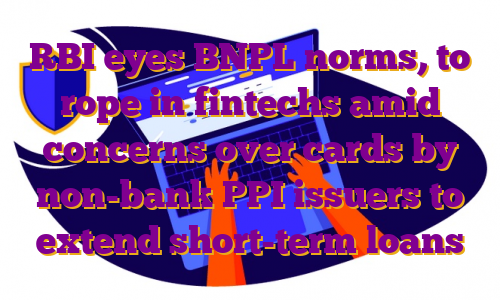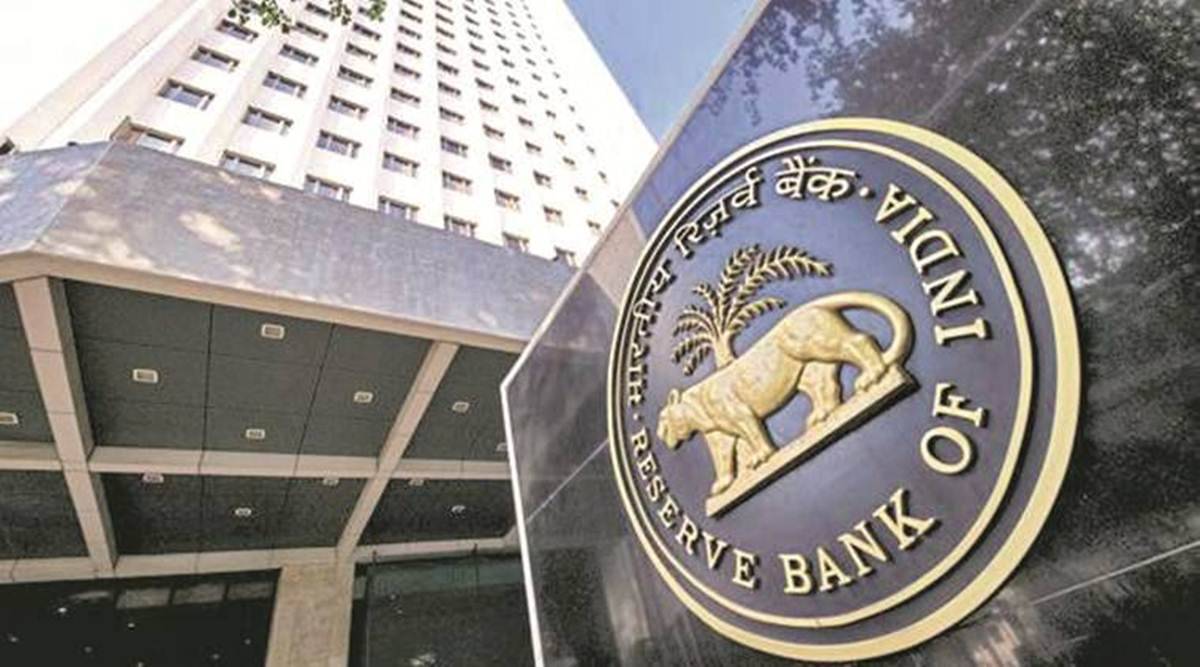After slapping curbs on non-bank buy now pay later (BNPL) companies, the Reserve Bank of India (RBI) is likely to come out with guidelines for the BNPL segment which was using pre-paid instruments (PPIs) to extend short-term, interest-free loans to customers for online purchases.
“This novel method shall be examined, and issuance of appropriate guidelines on payments involving BNPL shall be explored,” the central bank said in its Payments Vision 2025 document. The RBI had last week communicated to non-bank PPI issuers — or BNPL companies — to stop issuing cards where the funds are loaded through a credit line from NBFCs, sending jitters in the segment.
According to banking observers, the Reserve Bank is not happy with fintech companies using PPIs as a credit instrument, circumventing the regulatory oversight. The banking regulator is in discussion with fintech players to find a way out and bring the segment under a regulatory framework so that PPIs are used as a payment instrument and not as a credit avenue.
While BNPL services have developed into a new payment mode alongside the existing payment modes like cards, UPI and net banking, it has remained outside the direct RBI regulation. This channel, facilitated by a few payment aggregators, leverages the existing nodal account (escrow account after authorisation) to route payments between a BNPL customer and a merchant. “We welcome RBI’s move on barring wallet and PPIs top up from the credit lines. This will bring more transparency in the fintech lending space. We believe the main purpose of a PPI licence is to act as a payment instrument and not as a credit instrument,” said Nipun Jain, CEO, RapiPay Fintech Ltd.
The latest regulation is probably coming from recent developments wherein newer business models of credit-based payment products were built by companies using PPI as a vehicle, analysts said. The RBI has raised concerns on funding of these PPI instruments through a credit line from an NBFC, Kotak Securities said in a report.
ExplainedHow does a BNPL company operate?A customer who holds a BNPL card or account can make a purchase at a participating retailer and opt for the ‘Buy now, pay later’ option. After the purchase, the customer can repay the BNPL firm in a series of interest-free EMIs – unlike credit cards which carry a high interest rate of 42 per cent — spread over 3 months or as a lumpsum amount. If it remains unpaid, interest will be charged. The BNPL company will pay the merchant immediately. However, for a purchase of Rs 500, instead of settling the full Rs 500, they would pay something like Rs 470 or Rs 450 and pocket the difference. The merchant agrees to give a discount to the BNPL firm.
The RBI’s working group on digital lending had recently proposed restricting balance sheet lending by digital lending apps (DLAs) only to regulated entities of the central bank or entities registered under any other law for specifically undertaking lending business, enacting a separate legislation to prevent illegal digital lending activities and treating BNPL as part of balance sheet lending, and prohibition on unregulated entities from offering first loss default guarantee (FLDG).
Another major factor that worries the RBI could be the high delinquency levels in the BNPL segment. In the case of 60 days past due (DPD) credit, delinquencies in the BNPL segment are 18.9 per cent whereas non-BNPL show 10.1 per cent delinquencies, according to TransUnion Cibil data.
BNPL is India’s fastest-growing online payment method with a significant impact on banks, large merchants and card schemes. Due to its hassle-free on-boarding experience, extension of credit facility, low-cost structure for the customer and facilitating easy repayments, BNPL is growing popular among young income earners.
Some of the popular BNPL companies are LazyPay, Simpl, ZestMoney, Amazon Pay Later, Ola Money Postpaid, Paytm Postpaid, Flexmoney, Slice, UNI and EPayLater.
🚨 Limited Time Offer | Express Premium with ad-lite for just Rs 2/ day 👉🏽 Click here to subscribe 🚨
“Regulatory clarity for big tech and fintechs as well as BNPL will really help entities plan long term and invest even more in fintech in India,” said Avinash Godkhindi, MD and CEO, Zaggle.
The RBI ban on credit lines from NBFCs is likely to hit fintech companies in the BNPL segment. BNPL companies are active on Zomato, Swiggy and other e-commerce sites.
For customers around the globe, e-commerce payment preferences continue to shift away from cash and credit cards towards digital wallets and BNPL. In its report ‘Digital Payments in India: A US$10 Trillion Opportunity’, BCG said the digital payment market In India will be $10 trillion in the next five years (by 2026), with non-cash contributions comprising 65 per cent of all payments and two out of three transactions will be digital in the next five years.
!function(f,b,e,v,n,t,s)
{if(f.fbq)return;n=f.fbq=function(){n.callMethod?
n.callMethod.apply(n,arguments):n.queue.push(arguments)};
if(!f._fbq)f._fbq=n;n.push=n;n.loaded=!0;n.version=’2.0′;
n.queue=[];t=b.createElement(e);t.async=!0;
t.src=v;s=b.getElementsByTagName(e)[0];
s.parentNode.insertBefore(t,s)}(window, document,’script’,
‘https://connect.facebook.net/en_US/fbevents.js’);
fbq(‘init’, ‘444470064056909’);
fbq(‘track’, ‘PageView’);
.


